Agriculture
-
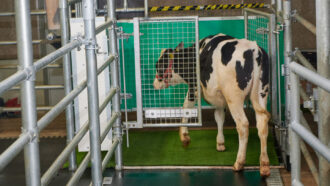 Agriculture
AgriculturePotty-trained cows could help reduce pollution
About a dozen calves have been trained to pee in a stall. Toilet training cows on a large scale could cut down on pollution, scientists say.
-
 Agriculture
AgricultureNew technologies might help keep drought-prone farms green
After learning how much damage drought can do to crops, two teens designed ways to detect a thirsty plant and make sure it gets enough water.
-
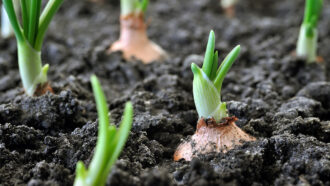 Agriculture
AgricultureHealthy soils are life-giving black gold
Scientists explain why everyone needs to value the soils beneath our feet — and why we should not view them as dirt.
-
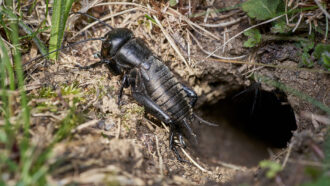 Agriculture
AgricultureSoil (and its inhabitants) by the numbers
Teeming with life, soils have more going on than most of us realize.
-
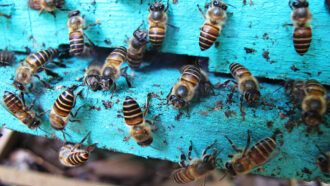 Animals
AnimalsHoneybees fend off deadly hornets by decorating hives with poop
Bees usually collect pollen and nectar. Scientists were surprised to find that Asian honeybees also gather animal dung to defend their hives.
By Asher Jones -
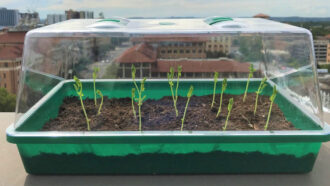 Agriculture
AgricultureDew collector brings water to thirsty plants
This invention grabs water from the air at night. All it needs is the sun’s warmth the next day to release that moisture to growing plants.
-
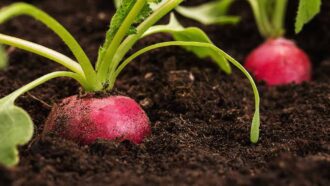 Plants
PlantsHow to grow your own science experiment
Does fertilizer help plants grow better? You might expect it to, but how can you know? This experiment will help you test it yourself.
-
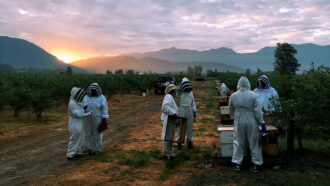 Animals
AnimalsLearning what stresses queen bees could save their hives
Beehives often die off after the queen gets too stressed to make enough babies. New tests could identify what stressed her — and point to solutions.
-
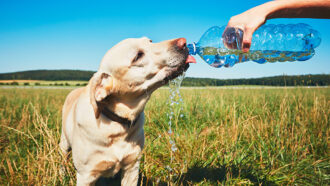 Climate
ClimateStudent scientists work to help all of us survive a warmer world
From glaciers in the refrigerator to a rover in the field, here’s how young scientists are looking to help us adapt to climate change.
-
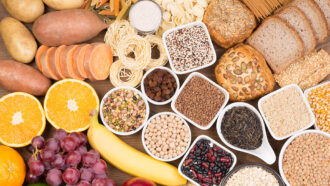 Agriculture
AgricultureScientists Say: Carbohydrate
Carbohydrates are molecules with carbon, oxygen and hydrogen. Animals break down these chemicals in food to get energy.
-
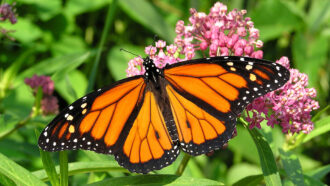 Environment
EnvironmentPesticides contaminate most food of western U.S. monarchs
Monarch caterpillars eat only milkweeds. A new study finds widespread pesticide use has tainted these plants across the insect’s western U.S. breeding grounds.
-
 Ecosystems
EcosystemsScientists Say: Prairie
Prairies are flat, fertile grasslands in North America. They are their own unique ecosystem.